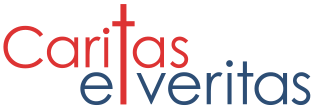Caritas et veritas 2020, 10(2):88-100 | DOI: 10.32725/cetv.2020.029
Aeschylus' Oresteia and the Problem of the Tragic Nature of Man
- Trnavská univerzita v Trnave, Teologická fakulta, Katedra kresťanskej filozofie, Kostolná 1, 814 99 Bratislava
The significance of the ancient tragedies is still relevant. Their constant inspiration for education lies, among other things, in their contribution to the issue of finding the essence of human nature. Aeschylus' work is one of the key milestones in literature, but it is also an example of the formation of specific (non-philosophical) answers to the question of man and his essence. The aim of the analysis of the trilogy Oresteia is to present selected aspects of this thinking which reflects and foreshadows problems in the philosophy of the 5th century BC. The study also focuses on the instrumental value of tragedy. Tragedy (not systematically, but more effectively and suggestively) represents one aspect of human nature - homo tragicus. Aeschylus' answer to the question of human nature is also related to his emphasis on the importance of law and justice which should be the only ruler in the community.
Keywords: Aeschylus, tragedy, human nature, polis
Published: September 30, 2020 Show citation
References
- Nurit YAARI, Greek Tragedy in Theory and Praxis: Aristotle's Theory of Tragedy in the Perspective of Aristophanes' Theatre Practice, Maske und Kothurn 1/1989, s. 7-19.
 Go to original source...
Go to original source... - Jaroslav DANEŠ, Politické aspekty řecké tragédie, Červený Kostelec: Pavel Mervart, 2012.
- Rastislav NEMEC, Filozofia práva I. Od Homéra po Augustína, Trnava: Dobrá kniha, 2017.
- Thomas A. SZLEZÁK, Za co vděčí Evropa Řekům, Praha: Oikoymenh, 2014.
- Charles SEGAL, Divák a posluchač, in: Řecký člověk a jeho svět, ed. Jean-Pierre VERNANT, Praha: Vyšehrad, 2005.
- Florence DUPONT, Aristoteles alebo upír západného divadla, Bratislava: Divadelný ústav, 2016.
- Martin ŠARKAN, Ku problematike pojmu katharsis v aristotelovských teóriách tragédie a drámy, Studia Aloisiana 4/2016, s. 63-78.
- Jean-Pierre VERNANT, Tensions and Ambiguities in Greek Tragedy, in: Myth and Tragedy in Ancient Greece, eds. Jean-Pierre VERNANT - Pierre VIDAL-NAQUET, New York: Zone Books, 1990.
- © Alessandro D'AVENIA, Oreste o del futuro, in: Corriere della sera / Ultimo banco (on-line), dostupné na: https://www.corriere.it/alessandro-d-avenia-ultimo-banco/19_settembre_16/2-oreste-o-futuro-315cab68-d791-11e9-9016-c6193fcbf5c4.shtml, citováno dne 8. 6. 2020.
- Martha C. NUSSBAUM, Křehkost dobra: Náhoda a etika v řecké tragédii a filosofii, Praha: Oikoymenh, 2003.
- Martin ŠARKAN - Rastislav NEMEC, Humanistic Paradigms of Education in the Postmodern Vision, in: Journal of Pedagogy 2/2010, s. 99-119.
 Go to original source...
Go to original source... - Miroslav KARABA - Rastislav NEMEC, Človek medzi prírodou, kultúrou a technikou: vybrané reflexie problému ľudskej prirodzenosti, Trnava: Dobrá kniha, 2018.
- George STEINER, Smrť tragédie, Bratislava: Divadelný ústav Bratislava, 2011.
- Rastislav NEMEC, O nádeji z filozofického hľadiska, Viera a život 3/2013, s. 75-79.
- Erika FISCHER-LICHTE, Dejiny drámy, Bratislava: Divadelný ústav, 2003.
- Simon GOLDHILL, Aeschylus - The Oresteia, Cambridge: Cambridge University Press, 2012.
- Encyklopedie antiky, ed. Ludvik SVOBODA, Praha: Academia, 1973.
- George THOMSON, Aischylos a Athény, Praha: Nakladatelství Rovnost, 1952.
- Walter NICOLAI, Zum doppelten Wirkungsziel der aischyleischen Orestie, Heidelberg: Universitätsverlag Winter, 1988.
- Eva STEHLÍKOVA, Antické divadlo, Praha: Karolinum, 2005.
- Ferdinand STIEBITZ, Aischylova Oresteia, in: Oresteia, AISCHYLOS, Praha: Artur, 2014, s. 196-236.
- Jon E. LENDON, Soldiers and Ghosts: A History of Battle in Classical Antiquity, New Haven; London: Yale University Press, 2005, s. 39-90.
- Gregory F. VIGGIANO, The Hoplite Revolution and the Rise of the Polis, in: Men of Bronze: Hoplite Warfare in Ancient Greece, eds. Donald KAGAN - Gregory F. VIGGIANO, Princeton; Oxford: Princenton University Press, 2013, s. 112-133.
 Go to original source...
Go to original source... - Jean-Pierre VERNANT, Počátky řeckého myšlení, Praha: Oikoymenh, 1993.
- Miroslav KARABA, Sme slobodní alebo neslobodní?, in: Viera a kultúra cestou človeka, ed. Miloš LICHNER, Trnava: Dobrá kniha, 2017, s. 301-324.
- Eric R. DODDS, Řekové a iracionálno, Praha: Oikoymenh, 2000.
- Jean-Pierre VERNANT, The Historical Moment of Tragedy in Greece: Some of the Social and Psychological Conditions, in: Myth and Tragedy in Ancient Greece, eds. Jean-Pierre VERNANT - Pierre VIDAL-NAQUET, New York: Zone Books, 1990, s. 23-28.
- AISCHYLOS: Oběť na hrobě, in: Oresteia, AISCHYLOS, Praha: Artur, 2014.
- AISCHYLOS, Agamemnón, in: Oresteia, AISCHYLOS, Praha: Artur, 2014.
This is an open access article distributed under the terms of the Creative Commons Attribution 4.0 International License (CC BY 4.0), which permits use, distribution, and reproduction in any medium, provided the original publication is properly cited. No use, distribution or reproduction is permitted which does not comply with these terms.



